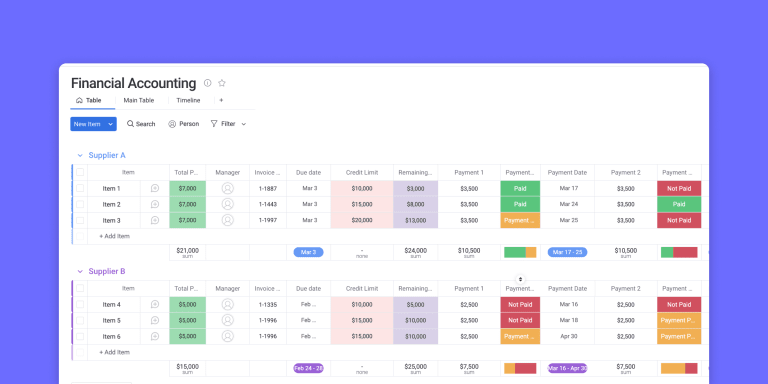Workplace trends
How do you say “layoffs” without saying “layoffs”?
As headcount is getting cut across numerous industries, the way this bad news is delivered to employees is shifting. Concerned about being canceled amid the social media trend of laid off workers railing on poorly executed final conversations, companies are increasingly turning to euphemisms to deliver the news. Spotify announced job cuts with the term “right-sized,” Citigroup referenced a “simplified operating model,” Polygon Labs explained the need for “an efficient surgical team,” Meta referred to “org changes,” United Parcel Service Inc. announced a “workforce reduction,” and the list goes on. While employers seem to believe that this softer and more vague language will not be as upsetting for workers, some experts say it’s actually causing let-go employees to feel more frustrated and resentful.
Australian companies exposed their gender pay gaps
Following Australia’s 2023 Workplace Gender Equality Amendment, the government released data showcasing the gender pay gaps at nearly 5,000 businesses with 100 employees or more across the country. The numbers paint a stark picture, with some of Australia’s largest and most highly recognized employers posting gender pay gaps of around 40% in favor of male employees. Nationally, the gender pay gap sits at 19%, and over the course of a year, the median salary that a woman is paid is $18,461 less than the median of what a man is paid. It’s important to note that the pay gap scale is not measuring equal pay – it’s measuring median remuneration in each business, which is the median pay of men and women across the company – regardless of seniority.
The AI corner
Google’s AI chatbot may be hurting its reputation
Gemini, Google’s AI chatbot, caused quite the stir for overly diversifying its answers to historical questions and blocking requests for depictions of white people. The controversy also morphed over into a broader backlash against the chatbot’s responses to different philosophical questions – apparently the chatbot spit out images of an Asian founding father, a female pope, and a Black Nazi. While Google quickly responded by suspending Gemini’s ability to generate images of people, the bot also went awry with its text-based answers. For example, Gemini was unable to decide whether Adolf Hitler had a worse impact on society than Elon Musk. Gemini’s image generation capabilities should be restored in the next few weeks, but it’s unclear how long it will take to restore the public’s confidence in the tool.
Musk is suing OpenAI for not benefiting humanity
Elon Musk is accusing OpenAI and its CEO, Sam Altman, of breaching a contract by putting profits and commercial interests in AI developments ahead of the public good. He claims that the multibillion-dollar partnership between OpenAI and Microsoft represents an abandonment of a founding pledge to carefully build the technology and make it publicly available. The 35-page lawsuit is just another problem piling up for OpenAI – the company’s relationship with Microsoft is also facing scrutiny from regulators in the US, EU, and UK; the company has been sued by multiple digital news outlets, writers, and computer programmers for using copyrighted material to train its chatbot; and the Securities and Exchange Commission is investigating Altman and OpenAI. Some experts, however, say that while Musk makes valid points, he likely doesn’t have the standing to bring it.
Supporting the women on your team
By monday.com
Friday is International Women’s Day, which is why in this week’s newsletter, we’re diving into how to support women at work.
According to the latest Women in the Workplace report from McKinsey & Co., the “Great Breakup” is continuing, with women in high positions demanding more from their workplaces and leaving their companies in unprecedented numbers in order to move forward in their careers. With women already significantly underrepresented in senior roles – holding just 28% of SVP and C-Suite positions – companies are having a harder time retaining key female talent.
Organizations that don’t to take action to address this risk not only losing their current women leaders, but also future ones, as young women today are even more ambitious than previous generations, with nine in ten surveyed women in the report under the age of 30 wanting to be promoted to the next level, and 75% aspiring to become senior leaders. Additionally, younger female professionals are placing a higher premium on working in equitable, supportive, and inclusive workplaces. So as they watch senior female colleagues leave for more promising opportunities, many are prepared to follow suit.
So, how can you support and empower the women in your workplace?
Recognize the power of language
Research has long shown that women receive less credit for their work than men, but it’s not always obvious whether this is the result of employers not giving women as much credit when they work in a group with men or women being less likely to take credit for their own work. Regardless of the reasoning, be a leader who helps the women on your team take credit for their achievements. Encourage them to say “I” instead of “we” and “the team” when describing their personal contributions and to own their direct impact. Create an environment where women can feel empowered to celebrate their wins, and do your best to give them meaningful and personal recognition when they achieve something great. Also, whenever possible, give them opportunities to showcase their accomplishments in larger forums so that others can appreciate their impact as well.
Share the mic
At times, in team syncs, male voices can dominate conversations and cause the women in the group to feel less comfortable chiming in. So, be present in larger meetings and look out for those who seem to be engaged, but lacking the confidence to speak up. If the call is remote, you can message them privately and ask if they want you to casually hand them the floor, and if the meeting is in person, you can try making eye-contact to gauge the situation. These kinds of small, mindful efforts on your end can effectively convey to your female employees that you see them and truly value their voices and insights in these conversations.
Beware of microaggressions
Years of research has revealed that women experience microaggressions at a much higher rate than men. In fact, the 2023 Women in the Workplace report found that women are twice as likely as men to be mistaken for someone more junior at work and to receive comments about their emotional state. And for marginalized women, it’s even more frequent and demeaning. That’s why it’s so important to be aware of these tendencies in the workplace and to go out of your way to foster a team culture in which this kind of negative workplace behavior is simply not tolerated.
If a woman on your team comes to you about an experience she had in which she felt disrespected or uncomfortable – whether it be by a teammate, client, or more senior colleague – make it clear that you’re not questioning her experience of what happened, and outline the steps you plan on taking to address the issue. Also, be sure to hold your employees accountable if they’re the source of these microaggressions, and encourage others on your team to speak up if they witness inappropriate behavior.
Try to be flexible
Women with more flexible working arrangements are less burned out and much less likely to consider leaving their companies than those without flexibility, per the Women in the Workplace report. The research revealed that this is largely because women still carry out a disproportionate amount of childcare and household responsibilities and because when they can work remotely at least some of the time, they experience fewer microaggressions and higher levels of psychological safety. So, as a manager, while you may not decide company policies for in-office attendance, you can still be an understanding and flexible leader when it’s within your control. If the parents on your team need to clock in earlier or block off some time in the late afternoon to pick their kids up from school or take their child to the doctor, try to be accommodating and trust that they will find the time to get their work done – even if at times it means working unusual hours.
Additionally, if you have middle-aged women on your team, they may be experiencing menopausal symptoms like trouble sleeping, increased stress, hot flashes, and mood swings. So, emphasize that taking time off for these difficult symptoms is not taboo and that your team members should feel comfortable coming to you if they need additional flexibility.
Advocate for them
Research shows that women face their biggest hurdle at the first critical step up to manager. In fact, this year, for every 100 men promoted from entry level to manager, only 87 women were promoted, per the Women in the Workplace report. And this gap is actually trending the wrong way for women of color, with 73 women of color – down from 82 last year – promoted to manager for every 100 men in 2023. As a result of this broken rung, women tend to fall behind early on. And with men significantly outnumbering women in managerial roles, there are fewer women to promote to senior managers, which lowers the number of women represented at every subsequent level. So do your best to advocate for the women on your team and build meaningful growth paths for them. When it comes to promotions, make sure you’re applying fair evaluation criteria and ensuring that bias hasn’t crept its way into your decisions.
Additionally, while there’s no one universal answer for why women tend to earn less than men, as a manager, you should try to fight for your female employees and fill the gap yourself. When a woman on your team is a star, push for her growth, even if she hasn’t asked for it, and empower the women on your team to set high career goals for themselves.
Help them find supportive resources
Having a female leader who can offer support and guidance can drastically influence where the women on your team go and how they get there. These mentors can relate to the obstacles and biases the women on your team may face in the workplace and offer advice, based on experience, on how to navigate them successfully. Additionally, they can instill greater confidence and give them something to aspire towards. So, try to seek out successful women within your organization who may be able to serve as mentors and resources for the women on your team.
On a similar note, recognize that having a sense of community can make a huge difference for women at work – from being able to connect to others with similar backgrounds to having a safe space to share their personal challenges. So, if your company has relevant Employee Resource Groups (ERGs), let your team members know these exist and encourage them to join if they’re interested.
Water cooler chatter
Bitcoin topped $68,000, edging closer to its all-time-high that occurred back in November of 2021. Experts say this surge is thanks, in large part, to the SEC’s approval of spot ETFs, which has led investment firms like Grayscale, BlackRock, and Fidelity to pour billions of dollars into buying the volatile digital asset.
Wendy’s is introducing surge pricing. In the latest earnings call, Wendy’s CEO Kirk Tanner shared that by the end of 2025, the fast food chain will roll out digital menu boards to US-based restaurants and that as part of the change, it will introduce dynamic prices – meaning that prices will change on the digital menu boards based on busyness and demand.
Question of the week
Last week’s answer: $3.2 million
This week’s question: What percent of Fortune 500 CEOs are female?
Just for laughs

Forbidding early morning meetings
Don’t miss more quality content!



